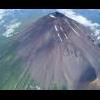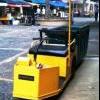Search the Community
Showing results for tags 'Nuclear'.
-
Source: https://mustsharenews.com/singapore-nuclear-energy-2050/ Singapore Could Potentially Use Nuclear Energy By 2050 When the topic of nuclear energy gets brought up, some might instinctively think of the dangers associated with the alternate energy source. However, nuclear energy can also be an efficient power source. On Tuesday (22 Mar), the Energy 2050 Committee published a report showing that Singapore could tap into nuclear energy in the coming decades. With recent advancements, nuclear technology has apparently become safer and more reliable. However, more research and development are needed to determine if it’s indeed viable for Singapore. Nuclear energy could supply 10% of Singapore’s needs by 2050 According to The Straits Times (ST), a report commissioned by the Energy Market Authority (EMA) concluded that about 10% of Singapore’s energy demand could be supplied by nuclear energy by 2050. While Singaporeans might understandably be worried about nuclear energy, the Energy 2050 Committee said advancements in the field have made the alternative power source safer than before. The report projected 3 uncertain geopolitical scenarios in 2050: Clean Energy Renaissance Climate Action Bloc Emergent Technology Trailblazer S’pore can determine if nuclear energy is viable by 2040s In the 3rd scenario, the world is fragmented and technology advancements will delay but eventually arrive. Singapore will be able to deploy low-carbon alternatives, such as nuclear energy, into its energy mix. The report stated that a fragmented geopolitical situation means that countries would find it harder to collaborate and achieve their climate targets. This would limit electricity imports in Singapore’s energy mix. This is as opposed to the other 2 scenarios, where electricity imports would contribute a significant portion of Singapore’s energy needs. Scenario 1: Clean Energy Renaissance Scenario 2: Climate Action Bloc Nevertheless, in all 3 scenarios, electricity imports, hydrogen, solar, and energy storage systems will be important. The Straits Times (ST) reported that in 2014, Singapore allocated $63 million to fund research and education in nuclear safety, engineering, and science. By the 2040s, Singapore would likely be able to determine if nuclear energy is viable. If so, we can start developing domestic generation capacities. Could contribute greatly to our climate efforts Once associated with danger and volatility, we are glad that modern developments have made nuclear energy much safer and hopefully more viable. While it might sound ambitious for Singapore to incorporate nuclear energy, it could contribute greatly to our nation’s climate efforts.
-
It is one thing to adopt more efficient technologies at generating power while reducing emissions, it is another thing to have something with potential to wipe out the entire region when a wrong move was made. Currently, nuclear fission based plants can produce power at a low cost but at the huge environmental impact with nuclear waste as a by-product. Nuclear fusion which is supposedly much safer is still quite sometime away. What's our fail safe plan if the plant encountered a melt-down? It's easy for her to say adopt a fail-soft approach which buys time but can we trust them with it? Nuclear plant breakdown is not the same as MRT breakdown. I know its not a new topic, but when she starts speaking to the media in public, we can be sure its a sure sign of things to come. Fire away guys.
- 296 replies
-
- 14
-

-
- nuclear plant
- ho ching
- (and 5 more)
-
https://asia.nikkei.com/Politics/Nuclear-button-U.S.-has-no-way-to-stop-president-s-legal-order?utm_campaign=GL_indo_pacific&utm_medium=email&utm_source=NA_newsletter&utm_content=article_link&del_type=11&pub_date=20210929053000&seq_num=13&si=44594 Nuclear button: U.S. has no way to stop president's legal order Woodward book 'Peril' sheds light on blind spot of command and control A military aide carries the "nuclear football" on the South Lawn of the White House. © Getty Images KEN MORIYASU, Nikkei Asia chief desk editorSeptember 29, 2021 00:30 JSTUpdated on September 29, 2021 03:16 JST NEW YORK -- If a U.S. president decides to launch a nuclear attack, the order is conveyed to a duty officer at the National Military Command Center at the Pentagon. The one-star commander executes the order in roughly a minute. In the most urgent case, a land-based intercontinental ballistic missile will fire in two minutes. A submarine-launched missile will fire in 15 minutes. That may be all it takes to end the world as we know it. The president has the sole discretion to authorize the use of nuclear weapons, and once the order is given and acknowledged, there is no way to reverse it. A new book by Bob Woodward and Robert Costa of The Washington Post sheds light on U.S. nuclear command and control, the procedures under which the devastating weapons would be launched. "Peril" describes a scene that occurred Jan. 8 when Gen. Mark Milley, the chairman of the Joint Chiefs of Staff, the highest-ranking officer in the country, summoned senior military officers to review the procedures for launching nuclear weapons. Milley acknowledged that the president alone could give the order, but told the officers that he -- Milley -- also had to be involved. "Looking each in the eye, Milley asked the officers to affirm that they had understood," the authors wrote. A Missile Combat Crew commander practices procedures at Vandenberg Air Force Base. Minuteman III missiles can be fired from silos two minutes after an order is made. © Reuters It was two days after supporters of then-President Donald Trump assaulted the Capitol, trying to halt the legal process that would certify Joe Biden as the winner of the November 2020 presidential election. Milley was inserting himself into the nuclear launch process, likely concerned that an unstable Trump might order an attack. But the chairman of the Joint Chiefs of Staff is the principal military "adviser" to the president, the National Security Council and the secretary of defense -- and is not in the chain of command. "The chairman of the Joint Chiefs of Staff is in no way responsible for the execution of military policy as ordered by the president," said Carrie Lee, chair of the department of national security and strategy at the U.S. Army War College. The nuclear chain of command runs through the president to the duty officer at the war room, and to the launch control centers of America's nuclear triad of ICBMs, ballistic missile submarines and strategic bombers. On Tuesday, Milley told the Senate Armed Services Committee that he received a call from House Speaker Nancy Pelosi on Jan. 8, inquiring about the president's ability to launch nuclear weapons. "I explained to her that the president is the sole nuclear launch authority, and he doesn't launch them alone," Milley said. "There are processes, protocols and procedures in place, and I repeatedly assured her that there is no chance of an illegal, unauthorized or accidental launch." Milley acknowledged to lawmakers that he is not in the chain of command, but said that as the commander in chief's primary military adviser he is in the "chain of communication." "The chairman is part of the process to ensure the president is fully informed when determining the use of the world's deadliest weapons," he said. According to a Congressional Research Service report titled "Defense Primer: Command and control of nuclear forces," when a president considers the nuclear option, the standard procedure would be to participate in an emergency communications conference with the secretary of defense, the chairman of the Joint Chiefs of Staff and other military advisers to assess the situation and consider the retaliatory risks of such an attack. The president may choose not to hold this conference, or to hold it only with people the president thinks would agree with his or her judgment. This could be the scenario that Milley feared. U.S. Navy submarine USS Alaska arrives at the Port of Gibraltar. The vessels can fire missiles at a target 15 minutes after an order. (Photo courtesy of the U.S. Navy) On Jan. 8, the country was without a defense secretary as Trump had fired Mark Esper two months earlier. Christopher Miller, director of the National Counterterrorism Center, was chosen by Trump as the acting secretary. A president who decides to take the nuclear option would communicate the intention through a device known as the "nuclear football" -- a suitcase carried by a military aide who is always near the leader. The president can choose the target from a book filled with prepared war plans. If the intended target is not in the book, the U.S. Strategic Command, or STRATCOM, will quickly prepare an alternative plan. When a decision is made, the president identifies himself or herself to military officials at the Pentagon using codes noted on an ID card known as the "biscuit." The order is given, and the weapons are fired. "Nobody can veto a president's order to release nuclear weapons unless it's illegal," said Vipin Narang, a professor of nuclear security and political science at the Massachusetts Institute of Technology. An attack could be deemed illegal if it violates the international law governing armed conflict, which calls for the principles of distinction, proportionality and necessity. But any plan contained in the war book would have been vetted by Pentagon lawyers and considered legal. "If the president woke up one morning and said, 'I want to launch a missile at downtown Manhattan,' that's clearly not necessary or proportionate and would be illegal," a congressional source said on background. In such a case, the duty officer at the National Military Command Center could refuse to comply, saying that the officer lacks the legal authority to carry out that plan. What Milley might have been suggesting, the congressional source said, is for the duty officer to "put the president on hold, initiate a conference and loop Milley in," especially if the order does not fit with the global threats monitored in the war room. Slowing the process could be one way to curb a spontaneous nuclear strike order. In a 2017 Senate Foreign Relations Committee hearing, Duke University professor Peter Feaver discussed two related scenarios: one where the military wakes up the president, and the other where the president wakes up the military. If the military wakes up the president and warns of an impending attack, Feaver said, "We all believe that the system would carry out the order that he gave. The electorate on Election Day chose him to make that decision." But if the president is suggesting nuclear use out of the blue, then many people will question the context of the order and why it is necessary. "He would require lots of people cooperating with him to make the strike happen, and they would be asking the questions that would slow down that process," Feaver said. The current rules and norms are remnants of the Cold War, when the president faced the possibility of snap decisions to respond to incoming Soviet missiles. They do not assume the American leader to be irrational or erratic. In Congress, there have been calls to constrain the president's authority. One bill proposed by Sen. Edward Markey and Rep. Ted Lieu, both Democrats, would prohibit the president from launching a nuclear first strike absent a declaration of war by Congress. "We cannot continue to give one person the awesome power to end life on our planet as we know it with nuclear weapons," Markey said in January, after reintroducing the bill following the Jan. 6 assault on Capitol Hill. But the process for a declaration of war by Congress could take weeks -- inappropriate for responding to imminent threats. Another idea involves the president sharing the authority with others. One option being discussed would require consensus among the president, vice president and speaker of the House of Representatives -- the first two individuals in the presidential chain of succession. Another option calls for the attorney general and the defense secretary to be involved in the decision. But the speaker of the House and attorney general are not necessarily nuclear weapons experts, nor are they regularly briefed on the security threats the nation faces.
-
Nuclear theft in KL.. https://sg.news.yahoo.com/exclusive-radioactive-device-missing-233936758.html
-
it looks like Malaysia will threaten the safety of Singapore if they secretly decide to build nuclear plant right at our doorstep, not one but 2 possible sites in Johor, as though Singapore dont exist , just like putting a knief under your throat , winter is coming http://forum.channelnewsasia.com/showthrea...Plants-in-Johor
-
Some proposed technological innovations seem so far out that they are easy to reject out of hand. But sometimes, a new idea has a kernel of plausibility. Such is the case with a new project to develop a laser power generation system that its creator says could provide electricity for the grid, stand-alone power applications and even cars. Laser Power Systems (LPS) from Connecticut, U.S.A, is developing a new method of automotive propulsion with one of the most dense materials known in nature - thorium. Thorium, a silvery-white metal, is a mildly radioactive element that is as abundant as lead. It is present in large quantities in India and is a much-touted stand in for uranium in nuclear reactors because its fission is not self-sustaining, a type of reaction called 'sub-critical'. Because thorium is so dense, it has the potential to produce tremendous amounts of heat. The company has been experimenting with small bits of thorium, creating a laser that heats water, produces steam and powers a mini turbine. Current models of the engine weigh 500 pounds, easily fitting into the engine area of a conventionally-designed vehicle. According to CEO Charles Stevens, just one gram of the substance yields more energy than 7,396 gallons (28,000 litres) of petrol and eight grams would power the typical car for a century. LPS is developing the technology so it can be mass-produced but whether authorities will allow thorium-powered cars to roam the streets is another question and a date has not been for a prototype version yet.
- 4 comments
-
- thorium
- thorium fuel
- (and 8 more)
-
The Char Bor Breasident of SK tell NK she gibe them a Park, but they must gibe up their Nuclear.... She taking the NK Ah Pui to be a small kid or a retard??
-
TOKYO: Japan will abandon nuclear power within the next three decades under new government policy on the post-Fukushima energy mix, a newspaper said on Wednesday. Prime Minister Yoshihiko Noda's administration will declare its intention to permanently shut down reactors by some time in the 2030s, the Mainichi Shimbun reported, citing unnamed government sources. The move would bring resource-poor Japan into line with Germany, which has said it will wean itself off nuclear power by 2022, and comes as regular vocal protests against nuclear power continue. The government "will formally decide at an energy and environment meeting this weekend" to stop the use of nuclear power, the paper said. Tokyo has worked to hammer out a new energy policy in the wake of last year's crisis, when reactors at Fukushima were swamped by the tsunami, sparking meltdowns that spread radiation over a large area. In the months that followed, Japan's entire stable of reactors were shut down for routine safety checks, with only two of them ever having been restarted, and those in spite of often vocal public protest. Last week, Noda's ruling Democratic Party of Japan (DPJ) issued a policy recommendation saying Japan should "put every political resource to realise a situation where the number of nuclear plants operated be zero in the 2030s". The DPJ listed three principles to achieve this: not constructing new nuclear plants, stopping old nuclear plants after 40 years of operation, and only approving the restart of nuclear plants that had passed safety checks by a nuclear regulator. The policy paper recommended Japan make greater use of renewable energy, and take further energy saving measures, including the use of smart metering. It also said Japan should develop resources in nearby waters and look to cheaper procurement of liquefied natural gas and other fossil fuels, including shale gas. Japan, with precious few resources of its own, is presently heavily dependent on oil from the Middle East and has been forced to ramp up its imports to make up the energy shortfall over the last 18 months. Nuclear had provided around a third of the country's electricity before the disaster at Fukushima. Noda said Monday he will incorporate the DPJ's recommendations into his new energy policy, which is expected to be finalised later this week. Ahead of a general election expected this autumn, nuclear energy has become a hot button issue in Japan with regular protests that sometimes attract tens of thousands of people calling for it to be ditched. At the same time the country's powerful business lobbies have worked hard to push for a restart of shuttered reactors, fearing power shortages. Germany last year said it would shut down its 17 nuclear reactors by 2022, while in Italy, a referendum rejected any resumption of nuclear energy generation, which was halted after the 1986 disaster at Chernobyl. Switzerland has approved plans to close its five reactors by 2034. However a number of Asian countries are pushing ahead with expanding their nuclear programmes. http://www.channelnewsasia.com/stories/afp...1225541/1/.html
- 47 replies
-
- Japan
- abolishing
-
(and 2 more)
Tagged with:
-
This guy power xia http://www.tomsguide.com/us/nuclear-reacto...news-12067.html A Nuclear Reactor in Your Kitchen is a Bad Idea10:30 PM - August 3, 2011 - By Douglas Perry - Source : Tecca Tweet5Share Would you have known that building your own private nuclear reactor in your home could be against the law? ZoomA 31-year old man in Sweden had no idea, but was at least in doubt, which is why he called local authorities to make sure. The man, whose name was withheld, constructed an apparently functional reactor in the kitchen of his apartment, kept track of radiation levels using his own Geiger counter, blogged about his project, and eventually inquired about possible legal issues. The authorities had an issue with the project and arrested the nuclear enthusiast on the spot. According to media reports, he succeeded in building a functional reactor, but was far away from producing electricity, which would have required a turbine and generator. However, he did have access to nuclear materials, which he acquired "overseas" and by disassembling a fire alarm. His teenage dream of operating his own nuclear reactor became a reality for the expense of about $950. He was released from jail when he promised not to build another reactor. His equipment was confiscated.
-
Jellyfish can cause a nuclear power plant meltdown By Carl Bagh | Jul 06, 2011 10:37 AM EDT It took an earthquake of magnitude 9 on Richter scale and a tsunami to force the shutdown of the Fukushima Daiichi nuclear complex in Japan due to fears of a possible meltdown. However, a recent report from Israel suggests that jellyfish can cause a nuclear power plant shutdown as well. Recently, the Orot Rabin nuclear power plant in Hadera, Israel, faced a similar threat when a swarm of jellyfish blocked the plant's water supply which is used as a coolant. In Scotland, reactors at Torness power station, operated by EDF, had to be shutdown as the seawater used as coolant was inundated with jellyfish. The reactors were closed as precautionary measure due to "high volumes of the high volumes of jelly fish fouling the cooling water screens", an EDF spokesman said. Scientists have ascribed the sudden rise in jellyfish population to an increase in acidity in oceans. Here are pictures of jellyfish jamming the water supply of the coal-powered Orot Rabin power station in Hadera, Israel: http://www.ibtimes.com/articles/175273/201...ors-edf-jap.htm Surge in numbers of jellyfish stinging tourists could be due to climate change By DAILY MAIL REPORTER Read more: http://www.dailymail.co.uk/travel/article-...l#ixzz1RL5SNe5t A surge of jellyfish wreaked havoc in the U.S. during the country
-
Business Times - 11 Apr 2011 S'pore starts pre-feasibility study on nuclear energy: Iswaran Singapore has embarked on a 'pre-feasibility' study on nuclear energy, aimed at helping the government better understand the complex field of nuclear energy, S Iswaran, the Senior Minister of State for Trade & Industry and Education, told Parliament on Monday. Mr Iswaran said the study will help the government gain a deeper insight into critical issues like the different technologies that are available and being developed; the international regulatory regime as well as the essential elements for the safe operation of a nuclear plant and protection against terrorist attacks. 'Even with the completion of the pre-feasibility study, we will still be a long way from making any decisions on nuclear energy for Singapore,' he added. Mr Iswaran said Singapore is also actively exploring options to diversify the nation's fuel mix in the near and medium term. He was replying to queries on whether the Fukushima incident in Japan would derail Singapore's study of nuclear energy." The above was taken from business times. Does that mean PAP is going nuclear? It is a yes or not question, if they are not why do a feasibility study? If the answer is yes, they have to say so cos voters need to know. Why are we not studying solar energy instead?
-

Nissan (USA) to screen imported Japanese vehicles for radiation
SYF77 posted a blog entry in MyAutoBlog
As fears of radiation from Japan's severely compromised Fukushima Dai-ichi nuclear power plant seemed to be growing by the minute, automakers have tried to assure car buyers that most of their products are produced far enough away from the crippled facility that fallout won't end up on their vehicles. However, Nissan USA wants to go a step further by performing a radiation inspection on all vehicles imported from Japan. Nissan is the first Japanese automaker to monitor its vehicles for radioactivity. The additional check will continue until all threats of contamination have subsided. Nissan is following through with the inspections even though The Japan Automobile Manufacturers Association announced that it has found no harmful levels of radiation in any vehicles destined for export. I feel that vehicle contamination, if any, would be far less severe than crop contamination. However, I salute Nissan USA for taking the extra step to give consumers a peace of mind. Sales of Japanese car worldwide has already been hit by a strong Yen, hope that contamination concern will not further dampen the sales figure. -
Hi guys, Been receiving sms/whatapps etc txt on asking ppl to avoid rain due to the jap nuclear leak. the mgs seems quite official, stating sources from BBC etc. Any truth to that? or ppl just sending for fun trying to stir sh!t?
-
This is getting SERIOUS!!!! TOKYO
-
the explosion and fear of radiation contanimation in japan will give PM 2nd, 3rd and 10th thought of building a nuclear plant in singapore. there is NO enough backup plan or prevention to avoid shits happen whether it's earthquake, tsunami, flood, human error, unknown factor, etc http://www.asiaone.com/News/AsiaOne+News/S...102-245235.html http://www.platts.com/RSSFeedDetailedNews/...icPower/8128577 Singapore PM says nuclear power plant possible "during my lifetime" Singapore (Platts)--1Nov2010/558 am EST/1058 GMT Singapore Prime Minister Lee Hsien Loong said Monday that nuclear power is a viable, clean source of energy that produces low carbon emissions, and the island state "cannot afford to dismiss the option of nuclear energy altogether." In addition, while a nuclear power project is not scheduled to start any time soon, a nuclear plant could be built in Singapore "during my lifetime," Lee said in response to a question as to when Singapore could consider building a nuclear power plant. Lee was speaking at the Singapore Energy Lecture of the annual Singapore International Energy Week. Nuclear energy is one of the viable solutions to global energy needs and to tackle global warming, as it is a clean source of energy which produces low carbon emissions, Lee said. Yet, harnessing nuclear energy is a highly complex and long-term enterprise, and there are significant issues relating to safety and disposal of nuclear waste, the prime minister added. "But without nuclear energy, the world cannot make sufficient progress in dealing with global warming," he said. As such, Singapore should keep up with new developments, advancing technologies on new, smaller and safer nuclear reactors with more fuel-efficient designs that reduce the amount of waste produced, Lee said. Singapore could also apply a "carbon price" for energy produced, if there is a global regime to curb carbon emissions, he said. "We (will) need to impose a charge to induce consumers to change their behavior," Lee said, adding this could be achieved through a carbon tax or through a cap and trade scheme. Presently, Singapore does not impose a carbon tax, but the government calculate a "shadow price" for carbon in its cost-benefit analysis to form policies and decision making process, the prime minister said. --Calvin Lee, [email protected] Similar stories appear in Power in Asia See more information at http://www.platts.com/Products/powerinasia/
-
Saw from today's headlines that our LEEder is already readying the necessary prerequisites for building a nuclear power plant in lieu of a decision. Given that a nuclear power station is something that has huge huge ramifications, e.g. socio-political and environmental impact, do you think that the general public should be consulted or even be involved in the decision making process. I personally think that having a nuclear power station in our own backyard is does not pale in comparison in terms of implications as did the decision taken by old man to join Malaysia back in 1963. Do you think we should have a referendum for this?
-
Anyone out there with the WHO, HOW, WHAT, WHEN , WHERE of nuclear power car? Sounds crazy, maybe. No need refuel, engine( reactor) very small is enough. maybe size of 1.5L petbottle. But....... when CRASH....... NUDE...Leak...
-
"Blue Skying" Cars a little... Would you accept the following situation... A nuclear power station is built in / near Singapore for the (primary) purpose of charging full electric vehicles (i.e battery powered) At the same time, the appropriate infrastructure is put in place to provide complete and convenient charging options on an assumed 90 minute charging cycle Full electric vehicles are priced at or slightly below current car prices for an equivalent sized car The car has a range of 100km per charge The cost per kilometre of a full charge is the electricity, which would be a small fraction of the cost of petrol - let's assume 25% for the purposes of argument. Would you buy / drive one? (other performance / safety / comfort factors all ceteris paribus with current cars)
-
http://news.asiaone.com/News/AsiaOne%2BNew...205-196800.html N 15 years' time, your television set or washing machine at home could be powered by nuclear energy. That is one of the possible alternative energy sources whose feasibility in Singapore should be studied, the Economic Strategies Committee's (ESC) sub-committee looking at ways of ensuring energy resilience and sustainable growth recommended in its report. One of the advantages of nuclear power is that the cost of generating it is less vulnerable to fluctuations in fuel costs. The interest in nuclear energy is not new in the region. Vietnam and Thailand have announced plans to build nuclear power plants in the next decade, and Malaysia and Indonesia are considering the option. However, the ESC acknowledged that "safety is a major concern, especially given our high urban density". Other considerations include the reliability of a nuclear power supply, and the complex issues surrounding nuclear fuel and waste disposal. In the near future, Singapore can consider diversifying its energy sources to include coal and imported electricity, and possibly harness renewable energy generated in neighbouring countries, the ESC suggested. This could mean tapping on geothermal power from countries like Indonesia, or hydroelectric power from the Mekong region. By 2020, 5 per cent of peak electricity demand should be supplied by renewable sources, the ESC recommended. These steps should be taken to ensure Singapore's economic competitiveness and energy security, while addressing environmental- sustainability issues, it added. But, currently, Singapore is not quite ready to take this step. Assistant Professor T. S. Gopi Rethinaraj, an energy security and policy expert at the Lee Kuan Yew School of Public Policy, told my paper: "There are several challenges facing Singapore. The current infrastructure is not viable enough to support the import of electricity. "Furthermore, there is currently no surplus energy in the region. Countries like Malaysia and Indonesia need to take care of their own energy needs first." In the long run, though, he sees a potential for a regional electricity grid, where countries in the region can share energy in a more efficient manner. "Factors such as the construction of transmission lines, ensuring the quality of the grid and its reliability need to be addressed." That is why the ESC also recommended that the Government invest in innovations and infrastructure ahead of demand. For example, "a robust, advanced and extensive grid and gas-transmission infrastructure can make markets more efficient, open new areas for economic development and strengthen our energy security", the ESC report said. Other key recommendations include studying a possible carbon-pricing scheme, and pricing energy to reflect real costs and constraints. This involves taking into account various externalities and constraints, like energy security. The ESC pointed out that the right pricing scheme will encourage energy consumption and investment decisions that prioritise energy conservation and efficiency. The Government should also further promote energy efficiency for buildings, industry and homes, and support clean and efficient technologies in transportation. [email protected]
-
As per topic,raising fuel price,do you think switching to nuclear power is feasible?
-
Just studied in chemistry class about nuclear fission. Found out that Nuclear Power is cheap, efficient, and safe. So wat do u guys think about a Nuclear Power Plant in Singapore? Pub bill will go down No need to rely on neighbors for natural gas

















